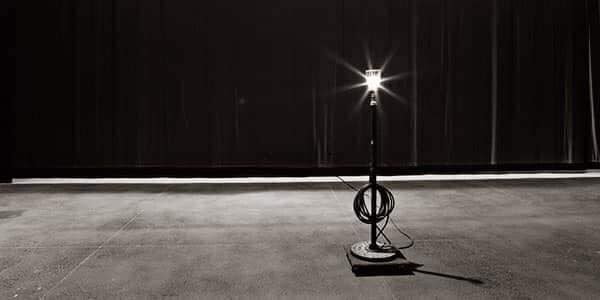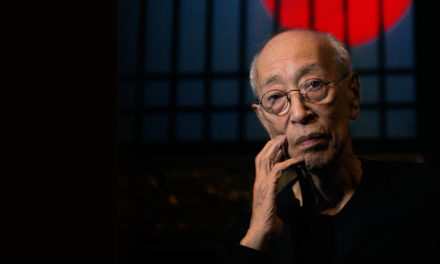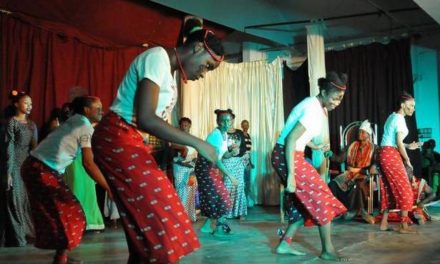On the center stage, where many an actor has strutted his stuff, sits a ghost light. Lonesome. Frail. Flickering. Such is the situation in many theatres around the world (with Africa, our Africa, not spared), lest a stray player may stumble over the orchestra pit or into the trap door of COVID-19. The tradition of keeping ghost lights to symbolize closure of theatres is linked to several superstitions and heresies, among which is a popular belief among actors that theatres, like all sacred places, are not infrequently plagued by a ghost after all. In fact, some playhouses, like the Palace Theatre in London, are rumored to keep seats during a show for these phantoms. Some of these are ghost characters that linger on after plays are done; some are incarnations of famous dead actors.
But Coronavirus is no imagination. It is none of those spiritual voices an actor hears in their mind. It is a deadly living plague sweeping through the world and falling curtains on its unsuspecting victims. So when, by mid-March, theatres had closed and ghost lights have taken places of actors, we all understood that this was the sweetest sorrow to bear, to slash the contagion of the virus.
The Tragedy
Theatre, the most social of all art forms, is an undeniably a mugatta-bantu – a bringer of people together. We keep on going for shows out of the sheer necessity of sharing breath, smell, perfumes, and the intimate interaction between actors and audience, which film or literature is devoid of. And now, COVID-19 is tearing us apart. The psychological and perceptive implications isolation and claustrophobia may have on audiences in an already fragile industry may be a drawback in the long run.
An average ticket at the box office costs about 8 USD, at least here in most African capitals, and that’s already way too dear for many potential revelers. With COVID-19 confining people at home with no regular income, one wonders how many people will make it to the box office when, finally, the plague is crumpled; when health and laughter return to streets again and life returns to theatre. One can only guarantee loyal audiences.
The escalating number of people succumbing to COVID-19 is, thus, a bitter toll on potential audiences and is already cutting its venomous teeth as it has into box office revenue, with many productions called off midway, funding cut off, actors sent home without pay, and many auxiliary businesses, such as lodgings and restaurants, closed. It looks as though life is sucked out of us. As though part of us is dying.
Of Theatre, Tragedy, and Resilience
“There have been as many plagues as wars in history; yet, always plagues and wars take people equally by surprise,” muses Albert Camus, winner of the Nobel Prize for Literature in his time, and author of the highly contemporaneous novel, The Plague. Camus, despite rejecting the label, was an existentialist through and through, and thus no stranger to peculiar tendencies of isolation to forge meaning in absurdist circumstances where life and reason seem beyond human comprehension. If the role of art is to give meaning to life in situations where reality proves meaningless, then theatre is the most resilient of art forms; theatre that has survived many wars and plagues will survive this perilous virus too.
You need not take this good news with your pinch of salt, soap, or sanitizer. Theatre thrives in the aftermath of the cruelest of tragedies. Shakespeare wrote his greatest tragedies, Macbeth, King Lear, and Antony and Cleopatra amid an intermittent bubonic plague that diseased England between 1599 and 1606, and rendered theatres sporadically closed over the period. The ugliness of the Second World War wrought new theatre movements ranging from Brechtian and absurdist drama to Antonin Artuad’s Theatre of Cruelty, whilst the horrors of the apartheid policy in South Africa birthed renowned playwrights such as Athol Fugard, John Kani, and Mbongeni Ngema. Theatre (and I want to apologize for this) has this stubbornness of making gold out of the social mire.
Gathering Pieces Together
It is true that the theatre has been caught pants down. The lockdown in many African countries meant the total lockdown of theatres. With limited alternative productions and poor documentation, not many African patrons can get electronic scripts, digital recordings of past productions, reviews, or online shows from their favorite theatres. As a result, many potential theatre-goers are resorting to other media at a time when theatre needs to galvanize its viewership. Times such as these make you realize how the African stage-man must think about giving life to a play beyond the stage.
And now that the pestilence has numbed us, outwitted our conventional knowledge, the theatre artist must take his creative isolation seriously. He must look at it as a time for theatre to fallow. Theatre is politics, and disease himself is politics. African audiences are searching for meanings to explain the immigration privileges of a visa-ed plague that broke out in China and now has defined the way Kenyans or Sierra Leoneans live their life in Kibera or Freetown.
Women need to understand how and why their cooking pots never see fire because their men can no longer go to work. And it is not about singing the sorrows alone but capturing the satire, the humor, and the joys as seen in memes young people share on social media amidst separation of loved ones, disease, and death. This is the work of the artist, or else COVID-19 wrings us into an abyss of extinction. Nigerian playwright Ola Rotimi put it better in The Gods Are Not to Blame: “Until the rotten tooth is pulled out, the mouth must chew with caution.”
This article was originally posted on The African Theatre Magazine on Saturday, May 2, 2020. To read the full article, click here
This post was written by the author in their personal capacity.The opinions expressed in this article are the author’s own and do not reflect the view of The Theatre Times, their staff or collaborators.
This post was written by Ian Kiyingi Muddu.
The views expressed here belong to the author and do not necessarily reflect our views and opinions.


















